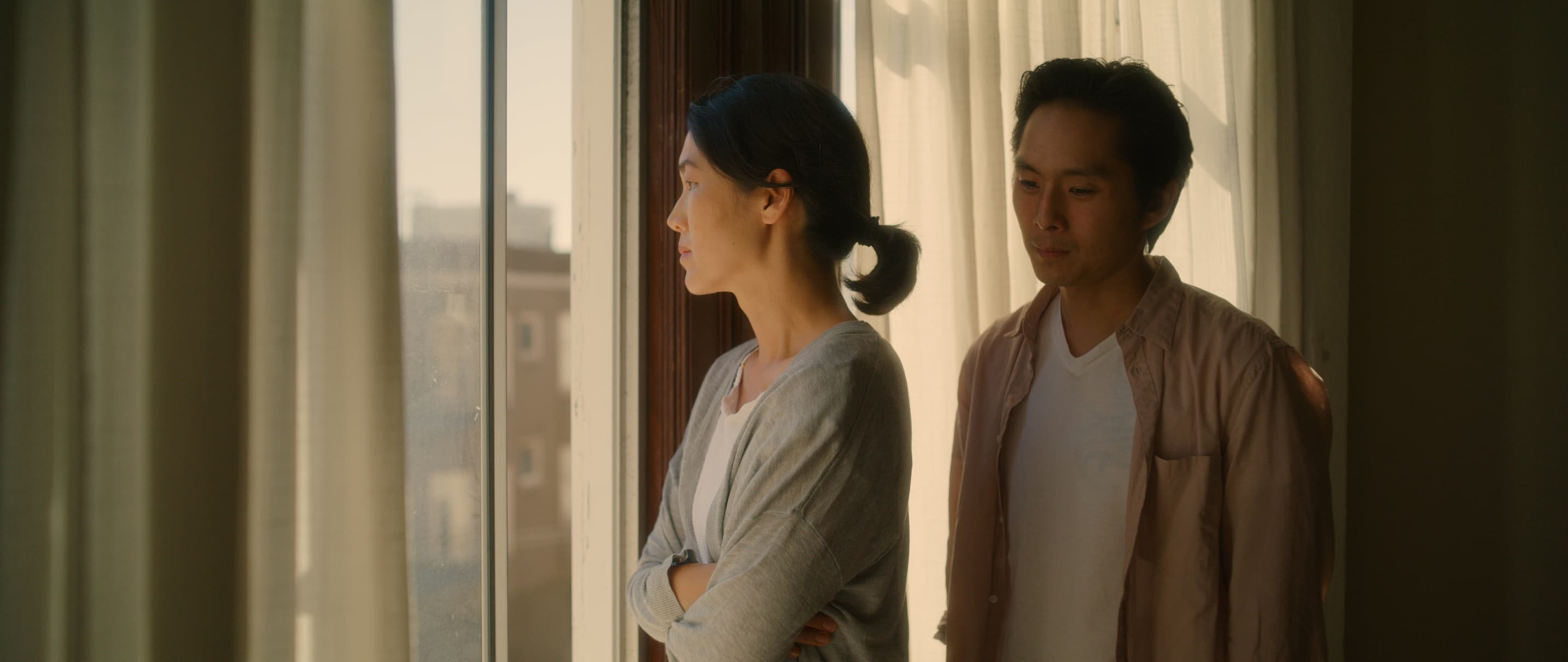Advertisement
Community Takes Center Stage At 12th Boston Asian American Film Festival

Over the previous 11 years, the Boston Asian American Film Festival's (BAAFF) screening committee has made a habit of gathering for in-person watch parties. Together, they heatedly discuss the films at hand. And according to the festival’s founding director Susan Chinsen, just as critical is what food to order. As many as two dozen people usually help choose the festival’s fiction and nonfiction features and shorts.
Chinsen says this communal process helps make the festival representative of the Asian American experience it aims to understand and showcase through film. The practice also differentiates BAAFF from festivals that rely on just a few curators’ individual tastes.
For film festivals generally, and Boston’s Asian American community, in particular, the year of COVID-19 is different in so many ways. Chinsen explains how she usually pulls all the threads together in person, “speaking from the heart” on opening night in a talk that “represents so much of everything we’ve been working towards for the past several months.” But because of going entirely virtual this year, she had to crystallize her thoughts in advance, in a one-take video.
At first, she thought the unfamiliarity with the form made it challenging, but then she took a step back and realized that the pandemic has made everything more difficult. “Many friends and family were hurting from how much xenophobia and anti-Asian racism people were dealing with,” she says.
When trying to plan events meant to bring people together, but that couldn’t be held in-person, she found herself wracking her brain for a solution. Chinsen started by finding remote ways to help the committee connect to each other. When possible, the BAAFF screening committee would simultaneously hit play on their own devices and then open a chat platform to discuss movies in real-time as a group (after having seen it on their own first). Despite moving online, Chinsen says she and others found that focusing on film was “a bit of an oasis” and brought “clarity in the face of so much unknown and uncertainty.”
Plus, they found common ground in their reactions. For example, after watching “A Thousand Cuts,” Chinsen says the committee was “really taken aback by how close to home the film hit.” The closing night documentary by Emerson alum Ramona Díaz unpacks the way Philippines President Rodrigo Duterte uses media to deploy false narratives, all while criticizing exactly that. And by cracking down on journalists like Maria Ressa. “It’s not just one crazy person; it’s really a whole method,” says Chinsen about the depiction of a free press under threat. “These are the cues and markers we need to fight against.”
Some of the on-screen fights take place closer to Boston. Another documentary, “Keep Saray Home,” questions current ICE policies that threaten to deport Southeast Asian war refugees living in Greater Boston. The titular character, Saray Im, fled Cambodia for the United States with his family as a child. Despite having served his sentence for a crime committed almost 20 years ago, he must defend his right to stay in Lynn with his wife and five children. The film shows how supporters rally around Saray, including a devastating scene where a small group quietly waits in a parking lot as he and his wife await a judgment on their future.
This year’s BAAFF centerpiece narrative, “Coming Home Again,” comes from Wayne Wang, the director who has had big hits like “The Joy Luck Club” and smaller ones like “Smoke” (quintessential Harvey Keitel and indie American filmmaking of the 1990s). Like “Smoke,” Wang’s latest is spatially contained and focused on a few key relationships. In this case, a son leaves his New York job and life to care for his dying mother in San Francisco. Wang’s adapted screenplay, co-written with Chang-Rae Lee, has the plucky edge of a fearless graduate student infused with the wisdom of seven decades. It strikes just the right balance between tenderness and sorrow.
Even though Chinsen acknowledges that the committee expressed pain and incredulity regarding some of this year’s films, she says that humor definitely comes through, too. She cites the narrative “The Paper Tigers” about middle-aged former Kung Fu prodigies or short film “Becoming Eddie” about a middle schooler who wishes to be as cool as a foul-mouthed comedian. Written by comedy writer (and Emerson professor) Ed Lee, the story is based on his childhood growing up Korean American in 1980s New Jersey. The goofy yet highly polished short is well worth the 15-minute running time. Incidentally, Chinsen says one upside to going virtual is that the screening committee could double the number of shorts this year from the typical 25 to 50 due to so much great content and no restrictions on physical space.
Food plays a supporting role in several of this year’s picks — in both “Coming Home Again” and “Becoming Eddie” — and a prominent one in the documentary “The Donut King.” It’s about how Cambodian refugee Ted Ngoy built a Southern Californian donut empire so powerful he kept Dunkin’ from breaking in. He also enabled hundreds of Cambodian American families to support themselves as owners of independent donut shops. The story captures the flickering promise of the American dream. And a whole lot of glaze. Do see it — and many other BAAFF films not mentioned here — but not on an empty stomach.
The Boston Asian American Film Festival runs virtually Oct. 21-25. “Coming Home Again” and the shorts programs will have extended virtual runs from Oct. 26-Nov. 1.


